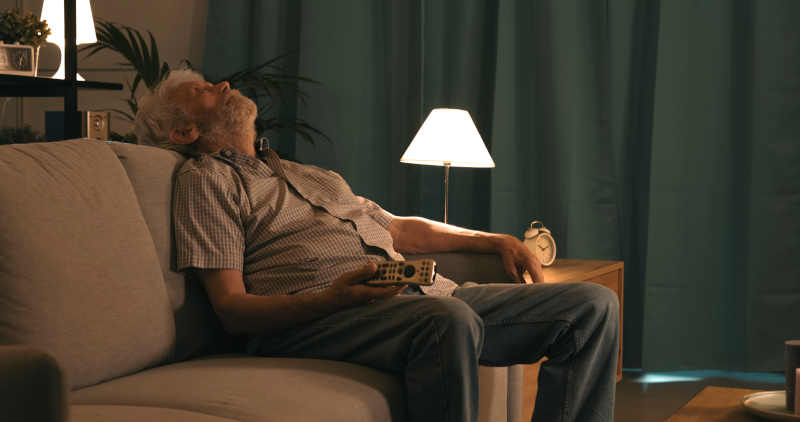5 Symptoms of Sleep Apnea to Watch for in Seniors
Our sleeping habits may alter as we age. Many people believe that as we become older, our demand for sleep decreases or that it is natural to anticipate poorer sleep. Insufficient sleep, especially in older persons, can lead to health concerns, thus this is far from the reality.
If you notice that a loved one struggles to fall asleep despite using sleep aids or feels exhausted and rundown most of the time during the day, it may be a sign that they have sleep apnea. Here are some of the typical symptoms of sleep apnea in case you think a loved one may be suffering from it.
Obstructive and central sleep apnea are the two forms of sleep apnea. The former is brought on by an obstruction in the airway, whereas the latter is brought on by a problem in the brain’s communication with the respiratory muscles.
Snoring Loudly or Gasping for Air
A respiratory disorder called sleep apnea causes reduced airflow when a person is asleep, which causes them to breathe shallowly or not at all. Sleeping next to someone who may have sleep apnea is the simplest way to detect the condition because typical symptoms include breathing pauses, gasping for air, or loud snoring.
Oversleeping and Fatigue During the Day
Excessive daytime sleepiness and weariness are some typical signs of sleep apnea. Your loved one may have sleep apnea if you find that they are still fatigued when they get up even after getting a full night’s sleep of 8 to 9 hours. Additionally, you might observe that your loved one lacks the energy to carry out their regular daily activities and responsibilities and seems more worn out and drained during the day. Additionally, they can experience a headache when they first wake up.
Frequently Waking up in the Middle of the Night Without Warning and Needing Frequent Naps
One of the most typical signs of sleep apnea is many nighttime awakenings without obvious cause, or frequent morning awakenings for toilet trips. The fact that your loved one struggles to fall asleep and frequently wakes up during the night could be a sign that their body is trying to alert them to a problem. Your loved one might require numerous naps during the day as a result of getting poor quality sleep at night.
Memory and Concentration Issues
Your loved one may experience memory issues, such as being unable to recall what they’re meant to perform or specific facts, as a result of not getting enough sleep the night before. Additionally, they could have trouble focusing on a particular task or activity.
Increasingly Agitated or Irritable
The amount of sleep that your loved one receives may also be an indication of sleep apnea if you notice that they are becoming more anxious, grumpy, or short-tempered than usual. An individual may become more readily irritated by things if they receive poor quality or insufficient sleep.




